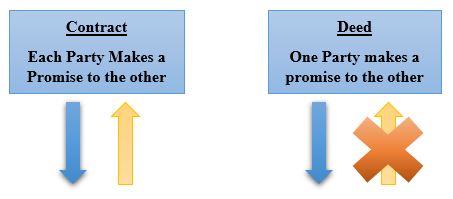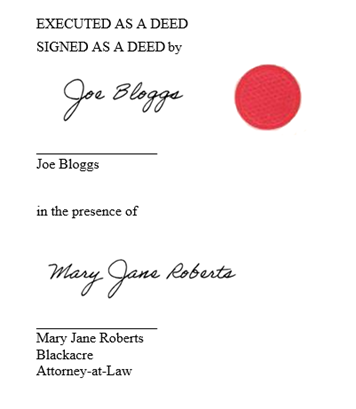
Yes Indeed: Overview of Deeds in Singapore
By Matthew Boyd
HJM Asia Law & Co LLC
Introduction
Whether it is buying a holiday home, appointing a care-giver for your loved ones or entrusting your assets to an investment agent on your behalf, it is very likely that, at some point in your life, you will be required to create a legal deed.
On September 8th, 2020 of this year, the Singapore Court of Appeal had to consider one of the formal requirements for a deed to be valid in law, namely the requirement for a deed to be sealed (as referred to below).
In this article, we will be answering questions such as: what is a deed? Why is it important to make a valid deed? What happens if there is an invalid deed? And lastly, how can I make sure I make a valid deed?
What is a deed?
A deed is a written document which requires someone who has made a legal promise to uphold that promise.
Unlike a contract, which requires both parties to give something of value, a consideration, to one another, a deed will be enforced even if only one party makes a promise to the other and receives nothing of value in return.
The below diagram illustrates the key difference between a contract and a deed:

When am I required to make a deed?
Deeds arise in a whole host of situations. Some examples include:
- Appointing another individual to act on your behalf to, for example, negotiate and enter into a commercial transaction overseas (for example, purchasing a holiday home abroad);
- Legally changing one’s name (known as a deed poll); or
- Guaranteeing an obligation (for example, a loan) payment for another.
How is a deed created?
Depending on the nature of the document, in Singapore, there are typically three (3) legal requirements which must be satisfied for a deed to be valid in law:
- The document must be signed by the person making the promise;
- The document must be sealed by the person making the promise; and
- The document must be delivered by the person making the promise.
Whilst requirements 1 and 3 are often the simplest to adhere to, requirement 2 is often an issue as it was in the recently decided Court of Appeal case Singapore (in other words, what is meant by sealing?).
An example of what may take the form of a seal is illustrated below:

What happens if I make an invalid deed?
The importance of making a deed which is valid in law cannot be overstated.
In the case of a relative who needs to appoint you or another member of your family to handle their financial and welfare needs, the risks are as follows.
If an invalid deed was made and subsequently, the individual becomes unable to make decisions for him/herself, your role as primary caregiver for your family member may be challenged.
In the business context, suppose your company extends a loan to another individual or company and, for security, you require another person to act as guarantor to repay that loan. Since the guarantor would be receiving nothing of value in return for you extending the loan to the borrower, he or she would be required under law to make a deed of guarantee in your/your company’s favour.
If that deed subsequently turns out to be invalid, you will not be able to ask the guarantor to repay the loan, which could be very costly to you or your company should the borrower default.
How can I ensure my deed will be valid?
Whilst there is generally no requirement for a lawyer to create a deed, since a deed is a legal document requiring compliance with prescribed formalities, it is always advisable to obtain legal assistance to ensure that not only is the deed drafted to fulfil the needs of your legal transaction, but also that it will be signed by the right persons in the correct manner to make it enforceable in law.

